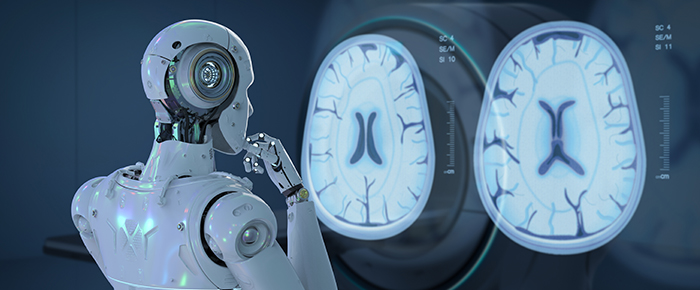
AI Revolutionizes Medical Diagnostics with Precision ToolsAI Revolutionizes Medical Diagnostics with Precision Tools The advent of artificial intelligence (AI) in the healthcare industry has brought about transformative advancements, particularly in medical diagnostics. AI-powered tools are revolutionizing the way healthcare professionals detect and diagnose diseases, leading to improved patient outcomes and more efficient healthcare delivery. Enhanced Image Interpretation AI algorithms can analyze medical images, such as X-rays, MRI scans, and CT scans, with a level of precision that surpasses human capabilities. They can identify subtle anomalies, patterns, and biomarkers that might be missed by the naked eye. This heightened diagnostic accuracy enables early disease detection, more precise treatment plans, and reduced misdiagnoses. Personalized Risk Assessment AI algorithms can integrate data from a patient’s electronic health records, genetic profiles, and lifestyle factors to estimate their risk for various diseases. This personalized risk assessment allows healthcare professionals to prioritize preventive measures, conduct targeted screenings, and tailor interventions to individuals’ specific needs. Pattern Recognition and Disease Surveillance AI systems can analyze vast databases of medical records to identify patterns, detect outbreaks, and predict disease trends. This real-time surveillance enables healthcare authorities to respond swiftly and effectively to potential health threats. Precision Diagnostics for Rare Diseases The diagnosis of rare diseases can be particularly challenging due to their rarity and complex symptoms. AI algorithms can sift through large amounts of data and identify patterns that may lead to a diagnosis, even when the disease is uncommon. Automated Decision Support AI-powered tools can provide automated decision support to healthcare professionals during diagnostic processes. By analyzing available information, these tools can generate suggestions for further testing, refer patients to appropriate specialists, or recommend treatment options. This support helps improve diagnostic accuracy and streamline decision-making. Benefits of AI in Medical Diagnostics * Improved diagnostic accuracy: Reduced misdiagnoses and false positives * Early disease detection: Identification of diseases at an earlier, more treatable stage * Personalized healthcare: Tailored interventions based on individual risk profiles * Enhanced efficiency: Automated image interpretation and decision support * Disease surveillance: Timely detection and response to health threats Conclusion AI has emerged as a game-changer in medical diagnostics. With its precision tools, AI algorithms are revolutionizing the way healthcare professionals detect and diagnose diseases. This transformation leads to improved patient outcomes, more efficient healthcare delivery, and a future where personalized and preventive medicine becomes a reality.
Posted inNews